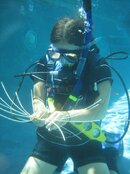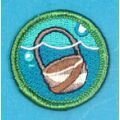I would have to add Navigation and Deep diving to the list of useful courses.
Also, if you want to get into photography or videography - finding someone that does these will save you a bunch of time and energy, so you don't have learn everything from scratch.
Ice diving is definitely not a basket weaving class. If your up for this type of diving, take the class - or at least go with someone that is extremely experienced.
Also, if you want to get into photography or videography - finding someone that does these will save you a bunch of time and energy, so you don't have learn everything from scratch.
Ice diving is definitely not a basket weaving class. If your up for this type of diving, take the class - or at least go with someone that is extremely experienced.






